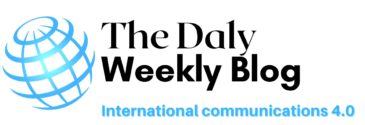We need ELF-ish standards to make English a truly functional and inclusive Lingua Franca
Who owns English? Whose standards? English is the most commonly spoken international language at over 1.1 billion speakers. It has been estimated that of all the English speakers of the world, non-native speakers (NNS) outnumber native speakers (NS) by more than 4 to 1. This means that English is being used more by NNS than […]
We need ELF-ish standards to make English a truly functional and inclusive Lingua Franca Read More »









